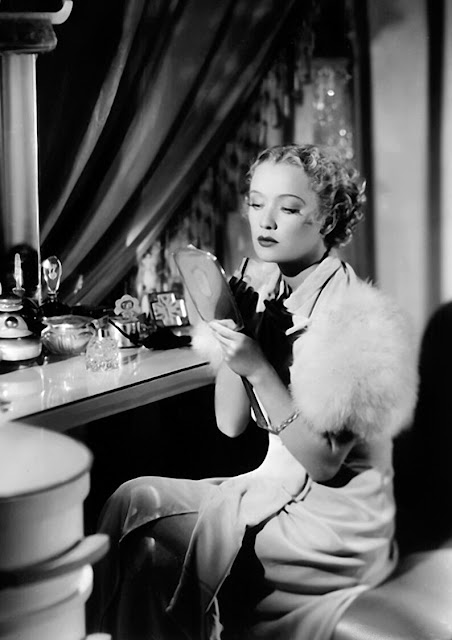Natalie Wood: Nourishment and Movement, Part One
Notes from Tenn in Contemplation of a Memoir
New Orleans
1982
Thinking of an adjective I might attach to Natalie Wood, and I always return to the same few: plaintive, fulsome, resilient. These are adjectives that would seem to contradict one another, but what was fascinating about Natalie was the electric current of unpredictability--volatility--that coursed through her. In any given encounter with her, you were likely to see her as strong, funny, resigned, sexy, messy, tough, loyal, defeated. Natalie did nothing without passion--at least in my experiences with her--and she never bored me, even as I felt she was often bored by her circumstances.
There is a particular personality that arises within and around the beautiful child, which Natalie certainly was, and remained. It is not delusion, I don't think, to compare aspects of Natalie with Elizabeth Taylor--two divinities who were given to us to adore and to ogle, and who were given to their families to provide better lives and homes and accessories. Both Natalie and Elizabeth were providers, in every sense of the word: artistic, financial, emotional. If you had either woman as a friend, you were covered in every way, for life. If you had either woman as a partner in a venture--film or play--you had the most attentive and diligent of students.
They were--and I do not mean this in a derogatory way--machines crafted by God and managers and mothers to provide, to heal, to amuse, to arouse, to calm.
Natalie had a great deal of ambition, and a great deal of pride. She understood that fate and the thwarted dreams of her mother had pushed her into the center of our attention, but she wanted to earn that position--and to keep that position--by willing herself to be a better actress, person, mother, and friend, and she utilized every skill she had to a degree that was astounding. I asked her once if she felt the dream of acting would have come to her in time, rather than having been suggested, forcibly, by her mother. I don't know, she answered. All I know is that I'm here right now, and this is what I do.
There was no time for a dream of something else--only a dream to be better at what she did, for herself and for others.
 |
| Tenn, Natalie, and Robert Wagner, as they prepared a 1976 television version of Cat On A Hot Tin Roof. |
She was inordinately sensitive--of her own feelings and of mine. I don't think that I was the recipient of special privileges: I think she felt her role in life was to husband, to cosset, to comfort, to cajole. Natalie was unafraid to be affectionate and available to me at moments of great crisis. I will love her and remember her for that always.
We were very much alike in very many ways, and I finally came to see that a Southerner shared a great deal with a Russian doll-princess. We were both terribly superstitious, aware of portents and vibes and rituals and myths. We both believed that there were correct ways--and correct numbers of ways--to do things so that life and movies and marriages turned out right. We both had dark and wicked senses of humor, and we both could laugh at ourselves, which is terribly rare, and it drew us closer to each other.
Natalie had gifts--her beauty and her energy--that were immediately apparent to others, and, again like Elizabeth, she became inordinately interested in those gifts that were not easily witnessed, like humor and intelligence and kindness and what she called a true sensuality. She wanted to know how people treated others and reacted to things: colors and scents and experiences. She loved the belief that a man's amatory gifts were accurately predicted by how he ate, by how he danced, and by how he drove a car. Nourishment and movement, she said. Life in a nutshell.
I think she got a lot of things other people didn't.
Part of me thought--on that awful morning when her body was discovered in that body of water--that she had simply stopped fighting. She had stopped fighting the men who told her she was aging; that her audience was dwindling; that she needed to take chances. She stopped fighting the many people who needed her money and her shoulders and her constant smile and wicked humor.
But then I think of her indomitable strength and will, how she went back, time after time, to get a character, a look, a take just right. She was so generous with her players--with Robert Redford and Charles Bronson, to whom she literally gave the light and moved gently toward better performances. Kate Reid, that magical and quixotic talent, rarely enjoyed passing out favors, but she fell in love with Natalie, and was grateful for being shown how to act with smarter intensity for the camera.
Maureen [Stapleton] captured her perfectly: Natalie was, to her, the Christmas-morning relative who always brought the perfect gift, the one that knew your heart: The perfect gesture. She gets dark, Maureen admitted, but she tries to take it to a private place. I followed her there because no one should be alone in a dark, private place. And no one, ever, helped her with that bag of gifts.
TO BE CONTINUED




Comments
Post a Comment
Thank you for your comments. The moderators will try to respond to you within 24 hours.